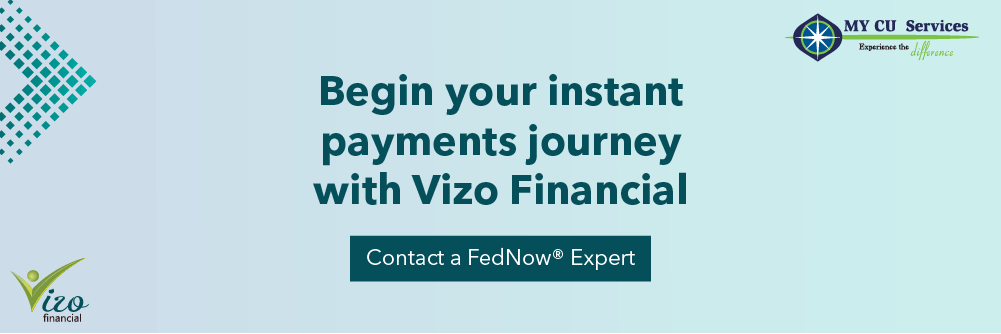5 Reasons Your Credit Union Should Consider the Development Education (DE) Program

Concern for community; cooperation among cooperatives; people helping people; education, training and information …each of these phrases mean a great deal to those of us within the credit union industry. They’re also the foundational phrases of the Development Education (DE) Program.
The DE program officially launched in 1982, and since then, over 2,000 people within the credit union industry have gone through the program. Vizo Financial alone has 14 DEs on staff. In case you’re unfamiliar with it, the program is hosted by The National Credit Union Foundation every year to help credit union employees learn more about the industry and the 12 developmental issues that stand in the way of financial freedom for everyone.
When you’re in the credit union industry, whether you work for a natural-person credit union, corporate credit union, league or any other organization associated with credit unions, a program like this is instrumental in understanding how to help natural-person credit unions better serve their members and communities. And the good news is that you can attend this program if you’re new to the industry or if you’ve been in it for a long time; your title and tenure are not important factors for the program.
In fact, when you enter the program, you have to leave your title at the door, and you don’t get it back until the last day when you graduate. So, in all reality, the question isn’t why should your employees attend the DE program…it’s why shouldn’t they? But alas, that wouldn’t make a great blog article…because we don’t have an answer for that. So instead, let’s talk about why your employees should attend.

Why Should Your Employees Attend the DE Program?
With this program, and any like it, there is a cost, from both a financial standpoint and a resources standpoint, but the return on investment when you allow your employees to attend the DE program is substantial.
- This program will strengthen your employees’ understanding of the credit union difference.
When your employees attend this program, they’ll learn more about the industry’s history, our forefathers and the eight cooperative principles. They’ll also learn about the leagues, chapters, corporate credit unions, associations, vendors and other critical organizations that serve credit unions. If your employees work at a natural-person credit union, this is important because they need to understand why credit unions operate the way that they do and why they were created in the first place. This portion of the program builds the foundational understanding of who credit unions are at their core and the organizations that were formed to serve credit unions. If your employees work at an organization associated with credit unions (corporate credit unions, vendors, credit union service organizations, associations, etc.), they’ll gain invaluable insights into how credit unions operate, which will help them and their organization better serve natural-person credit unions.
- Attending this week-long program will teach employees about the developmental issues that people in America and around the world are facing.
These issues, which affect many Americans everywhere, include:
- Credit
- Diversity and Equity
- Education
- Environment
- Employment
- Health
- Housing
- Hunger
- Inclusion
- Savings
- Technology
- Transportation
These developmental issues are a large part of the program because of their significant impact on people within our country. For example, did you know that almost two-thirds of American’s aren’t considered “financially healthy,” meaning that they may not have an emergency fund or they aren’t able to save as much as they should for retirement — and the disparities widen when you break it down by race, gender identity and income levels.
In fact, many of these people are one bad situation away from being in serious financial trouble. Say their car breaks down; they’re out of work for a few weeks because they’re sick; an unexpected bill arises; their refrigerator or another large appliance breaks – these situations can crumble their financial stability and result in a serious disruption to their lives. And these issues aren’t just affecting people in places like rural America; they’re affecting your community, members and probably even your employees. Understanding these issues and learning how to use the credit union business model to help others overcome these issues is one of the main objectives of this program, and it’s incredibly beneficial for those in our industry.
- It encourages employees to utilize empathy when serving members.
When it comes to our day-to-day jobs, we can become complacent. Often times, we may see our members as just another customer (I know, the dreaded word) who needs help and not as people who have lives, struggles and issues that they’re dealing with. People are so much more than what a piece of paper says about them. They’re so much more than a credit score, account balance or loan application, and it’s important for your employees to remember that when helping members. When your employees go through the DE program, they’ll learn how to be more empathetic and use that empathy to better serve members. It’s our job, as employees of credit unions, to remember that we are people helping other people, and this program not only reminds us of that, but also shows us how to incorporate it into our daily interactions with members.
- It allows employees to network with others within the credit union industry.
If you ask anyone who has gone through the DE program, they’ll tell you…it’s quite intense. You spend a lot of time with the other people in the program. For in-person trainings, you eat breakfast, lunch and dinner together, and you spend all week learning together. For the virtual trainings, you may not be eating meals side by side, but you still spend hours a day learning and working with others in within the class. People who have been through the program will also tell you that you develop a close bond with others very quickly. Most people still keep in touch with those who they’ve gone through the program with. It’s a great opportunity to network and build career-long relationships with other people in the credit union industry. It’s also a great opportunity to learn what other credit unions are doing in their communities and how they’re serving their members. This networking portion of the program builds the foundation for collaboration between natural-person credit union employees and those who serve credit unions, resulting in more opportunities for cooperation among cooperatives.
- This program is an immersive experience that provides hands-on training.
Like we mentioned above, the program is intense, but it’s also immersive and very hands-on. It offers classroom learning, group work and the opportunity to see things from another perspective . Attendees have the opportunity to participate in open discussions, utilize their newfound knowledge in projects and learn about real-life situations that are happening in other credit unions and also around the world, as people from other countries attend the program too. In order to get the best out of the experience, The National Credit Union Foundation encourages everyone to “attend every session, leave your title at the door and trust the process.”
At the end of the program, attendees will receive their credit union development educator (CUDE) designation, which The National Credit Union Foundation has determined signifies, “a deep understanding of how credit unions can leverage the cooperative principles to overcome development issues and increase financial health.” More than that, they’ll have a new appreciation for our industry and for their job within the industry, as well as walk away with the knowledge and experience they need to better serve those impacted by natural-person credit unions, including members of credit unions, employees who work at credit unions and the communities where credit unions operate.
If you’d like to learn more about the DE program through The National Credit Union Foundation, visit their website. While the programs for 2024 have reached capacity, we encourage you to keep an eye on their website for the release of the 2025 programs.
Won’t you consider attending an upcoming DE session? It’s an experience of a lifetime for all credit union lovers and everyone who wants to be part of the best class ever (you may not understand this now, but you will once you attend 😉) !

